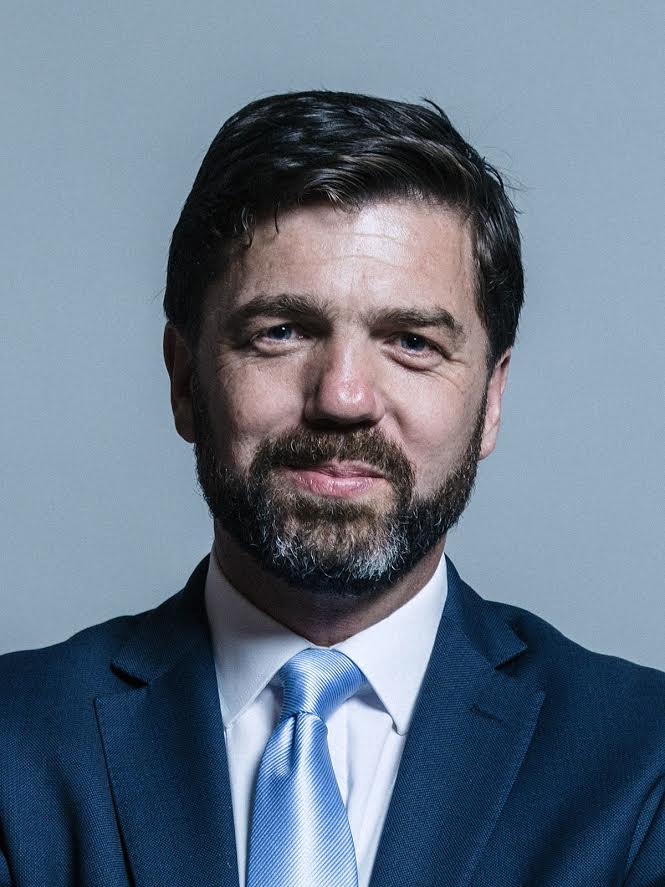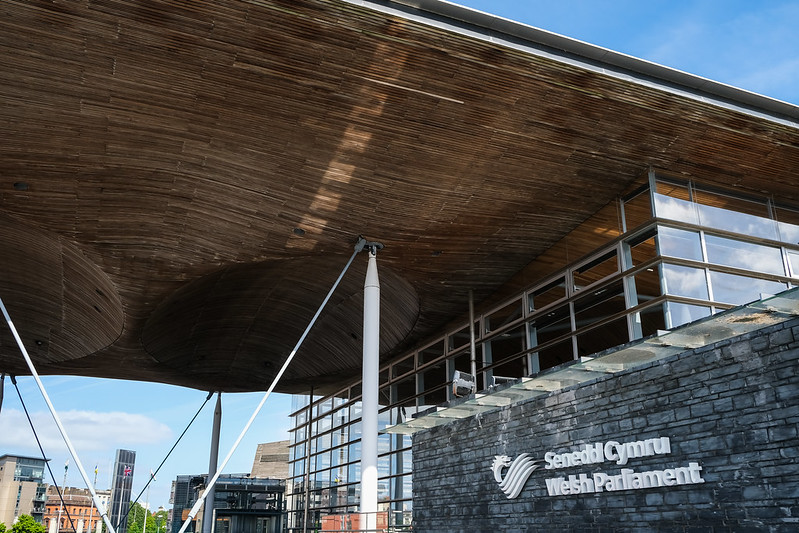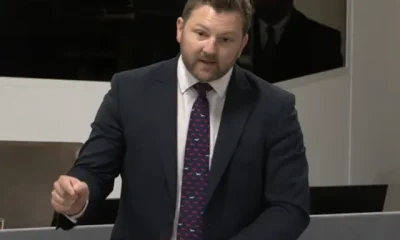Politics
Sooner or later the Conservative Party must talk about poverty

FROM David Cameron’s focus on life-chances to Theresa May’s burning injustices and now Boris’s vision for levelling up, building a fairer society has been a central theme for my party over the past decade.
But, as last week’s row over free school meals illustrated, we are not always comfortable speaking in direct terms about poverty and hardship.
Some Conservatives prefer the aspirational language of opportunity and social mobility; others choose broader phrases such as social justice or the banner of One Nation. There is a lot of overlap of course.
But when it comes to discussing the problem of families not having enough money to get by, we sometimes struggle to find the vocabulary. Language matters and if we can’t find the words, we probably won’t find the solutions.
The UK has yet to feel the full force of the economic storm that Covid-19 has unleashed but there are already signs it will cause lasting damage to vulnerable communities, undoing much of the progress achieved in cutting unemployment over the past decade.
The speed and scale of the government’s intervention to protect workers during the lockdown has been unprecedented. But paying the wages of nine million people is not sustainable. As the furlough scheme begins to unwind, unemployment will rise with potentially millions of people losing jobs – pulled into poverty through no fault of their own.
Many have already been forced to turn to the benefits system. The most recent figures show a staggering 2.3 million new universal credit claimants. This will grow further.
The system itself has handled the increased caseload remarkably well. But many families will find the change from the emergency parachute of furlough to the longer-term safety net of universal credit a very hard landing indeed.
Worryingly, areas that were already struggling before the pandemic, such as ex-industrial and coastal towns, are likely to be the places hardest hit. These are the very communities at the heart of the levelling-up vision. But the full gains from increasing investment in poorer regions won’t be seen for years. It is not the answer to the question of how we support those families being pushed into poverty right now.
Even before the virus struck there were signs that too many families were struggling to make ends meet, including large numbers of working families also living in poverty.
Research from the Joseph Rowntree Foundation shows that nearly two-thirds of families on universal credit have been forced to borrow money since the start of this crisis. As the economic fallout from coronavirus grows, many families will be plunged deeper into debt. In April the government increased the universal credit standard allowance by £20 a week, recognising the extra pressures millions are now facing.
But to prevent further hardship, as more people fall out of work and for longer periods, there is a case for strengthening our system of social security. The political choices of the past decade that saw working-age benefits squeezed while the state pension was boosted by the triple lock are not the ones for this new period we are entering.
So, what steps can we take? Firstly, we could implement the recommendation of the work and pensions committee this week and uprate the legacy benefits.
The Joseph Rowntree Foundation is also calling for a temporary increase of £20 per week in the child element of universal credit and child tax credits to prevent families being pulled further into poverty. Compared with the eye-watering costs of the furlough scheme, this measure could represent a reasonable price to pay to hold families steady during this crisis.
As the government turns its attention to a growth strategy to fire up the economy, with a focus on jobs, apprenticeships and infrastructure, we should not forget our mission to support families facing hardship at this time.
This would reflect the best of all Conservative traditions.
This article was first published in The Times on Thursday, June 25 and is reproduced by kind permission of Stephen Crabb MP
Business
Pembrokeshire industrial jobs ‘could be at risk’ as parties clash over investment

TRADE unions have warned that hundreds of industrial jobs in Pembrokeshire could be at risk without stronger long-term support for Welsh manufacturing, as political parties set out competing approaches ahead of the Senedd elections.
TUC Cymru says its analysis suggests 939 industrial jobs in Pembrokeshire could be vulnerable if investment in clean industrial upgrades were withdrawn, warning that policies proposed by Reform UK, and to a lesser extent the Conservatives, pose the greatest risk to industrial employment.
The warning comes as the union body launched its “Save Welsh Industry – No More Site Closures!” campaign at events in Deeside and Swansea, calling on all political parties to commit to a five-point plan to protect and future-proof Welsh industry.
According to TUC Cymru, jobs at risk locally include 434 in automotive supply chains, 183 in rubber and plastics and 75 in glass manufacturing. The union body says these sectors rely on continued investment to remain competitive and avoid offshoring.
TUC Cymru said its modelling focused on industries most exposed to closure or relocation if industrial modernisation and decarbonisation are not delivered. It argues that without sustained public and private investment, Welsh manufacturing faces further decline.
A GMB member working at Valero in Pembrokeshire said: “It’s clear Nigel Farage has no clear plan. I can see this industry collapsing under his policies. We need support, not division. His way will lead to job losses across the board and the lights will go out.”
The union body stressed that all parties need to strengthen their industrial policies, but claimed Reform UK’s stated opposition to net zero-related investment would place the largest number of jobs at risk across Wales, estimating that almost 40,000 industrial jobs nationally could be affected. Conservative policies were also criticised, though the TUC said the likelihood of job losses under the Conservatives was lower.
Labour has rejected claims that Welsh industry is being neglected, pointing to recent investment announcements made at the Wales Investment Summit, where more than £16bn worth of projects were highlighted as being in the pipeline across Wales.
Ministers said the summit demonstrated growing investor confidence, with projects linked to clean energy, advanced manufacturing, ports, digital infrastructure and battery storage, and thousands of jobs expected as schemes move from planning into delivery.
Labour has argued that public investment is being used to unlock private sector funding, particularly in industrial regions, and says modernising industry is essential to keeping Welsh manufacturing competitive while protecting long-term employment.
At UK level, the party has also highlighted its National Wealth Fund and GB Energy commitments, which it says will support domestic supply chains, reduce long-term energy costs for industry and help secure both existing and future jobs.
Opposition parties and some business groups have questioned whether all announced projects will translate into permanent employment, arguing that greater clarity is needed on timescales and delivery.
Reform UK has argued that scrapping net zero policies would cut public spending and reduce costs for households and businesses, while the Conservatives have pledged to roll back climate-related targets and reduce regulation on industry.
Unions dispute those claims, warning that higher electricity prices and a lack of investment would make Welsh industry less competitive internationally.
TUC Cymru President Tom Hoyles said Welsh industry needed urgent action from all parties to survive and thrive in the 21st century, warning that policies which sought to turn back the clock could put thousands of Welsh jobs at risk.
With industrial areas including Flintshire, Neath Port Talbot and Carmarthenshire also identified as facing significant pressures, the future of Welsh manufacturing is expected to remain a key political issue in the run-up to the Senedd elections.
Education
School leaders deliver Christmas cards to Senedd calling for fair funding

SCHOOL leaders from across Wales are delivering Christmas cards to the Senedd today in a symbolic call for fair funding for schools.
The cards, one for every Senedd member, are being delivered by school leaders’ union NAHT Cymru, urging politicians to give children in Wales what it describes as the “best Christmas gift” – a fully and fairly funded education.

NAHT Cymru national secretary Laura Doel and president Kerina Hanson are gathering outside the Senedd at 1:00pm today before handing the cards in at the Senedd reception.
The action follows the union’s warning last week that while £339m came to the Welsh Government as a result of increased education spending in England for the 2026/27 draft budget, only £39m has so far been allocated to core school budgets in Wales.
Earlier this week, an additional £112.8m was allocated to local government following a budget agreement between the Welsh Government and Plaid Cymru, with some of that funding expected to reach schools.
However, NAHT Cymru says the additional money will fall well short of what is needed. The Welsh Local Government Association has predicted a £137m shortfall in school budgets in Wales for the next financial year, while local authorities are also facing a £200m deficit in social care funding.
The union has also raised concerns that the First Minister has declined to explain how the £339m of additional education funding has been allocated, prompting calls for urgent and transparent scrutiny of the budget.
Speaking ahead of the card delivery, Laura Doel said: “Christmas is a time of giving, and we’re urging the Welsh Government to give schools in Wales the funding they rightfully deserve.
“The money that comes to Wales for education should be spent on education, yet we know much of it has never reached schools. We urgently need clarity on where this money has gone and to see greater investment going directly to pupils.
“The system is at breaking point, and without action we are facing an incredibly bleak new year for schools across Wales.
“We’re calling on every member of the Senedd to act this Christmas and give children in Wales the best possible gift – a fully and fairly funded education.”
The Welsh Government says education remains a priority, pointing to additional funding agreed with Plaid Cymru for local government, some of which is expected to support schools.
However, teaching unions and local authorities continue to warn that funding pressures remain severe.
Business
Unemployment in Wales rises to highest level in a decade

Welsh jobless rate hits 6.1% as Conservatives blame Labour and Plaid budget deal
UNEMPLOYMENT in Wales has climbed to its highest level in ten years, according to the latest labour market figures.
Statistics covering September and October 2025 show the unemployment rate in Wales now stands at 6.1 per cent — the highest since mid-2015. The figure represents a rise of 1.4 percentage points compared with the previous quarter and remains higher than the UK average.
The increase comes amid continuing pressure on households and businesses, with higher costs, weaker growth and ongoing uncertainty affecting parts of the UK economy.
The figures have prompted criticism from the Welsh Conservatives, who have blamed both the UK Labour Government and the Welsh Government for what they describe as a deepening employment crisis in Wales.
Commenting on the data, Welsh Conservative Shadow Cabinet Secretary for Economy and Energy, Samuel Kurtz MS said the Welsh Government needed to take urgent action.
“Labour and Plaid’s unemployment crisis is deepening; the Welsh Government must get a grip,” he said.
“Rachel Reeves’ latest budget has hit business hard, with unemployment rising every month under Labour and yet again higher here in Wales than elsewhere.
“Labour can’t be trusted with the economy. The Welsh Conservatives are offering a bold and costed tax-cutting agenda to kickstart growth, including the abolition of stamp duty and cuts to business rates, but Plaid and Labour’s stitch-up of a budget deal will mean more of the same economic decline.”
The Welsh Government has previously argued that employment figures are influenced by wider global and UK-wide economic challenges, as well as long-standing structural issues within the Welsh economy, including lower average wages and higher levels of economic inactivity.
Ministers have pointed to investment in skills, apprenticeships and infrastructure as part of efforts to support jobs and stimulate growth, while also noting that key economic levers remain reserved to Westminster.
Economists caution that quarterly unemployment figures can fluctuate and should be viewed alongside longer-term trends, including economic inactivity and underemployment.
However, with unemployment now at its highest level for a decade, pressure is increasing on both the UK and Welsh governments to demonstrate how their economic policies will deliver sustained job growth in Wales.
-

 Crime7 days ago
Crime7 days agoPhillips found guilty of raping baby in “worst case” judge has ever dealt with
-

 Crime6 days ago
Crime6 days agoKilgetty scaffolder sentenced after driving with cocaine and in system
-

 Crime6 days ago
Crime6 days agoHousing site director sentenced after failing to provide breath sample following crash
-

 News2 days ago
News2 days agoDyfed-Powys Police launch major investigation after triple fatal crash
-

 Crime6 days ago
Crime6 days agoMotorist banned for three years after driving with cannabis in system
-

 Crime3 days ago
Crime3 days agoMan spared jail after baseball bat incident in Milford Haven
-

 Crime16 hours ago
Crime16 hours agoMan sent to Crown Court over historic indecent assault allegations
-

 Education5 days ago
Education5 days agoTeaching assistant struck off after asking pupil for photos of her body



























